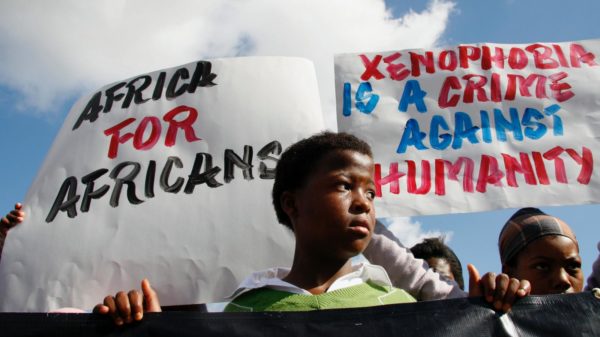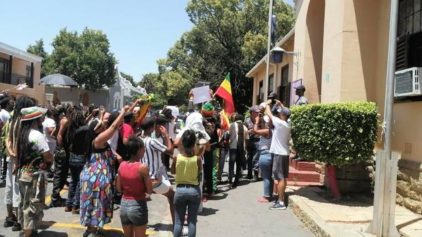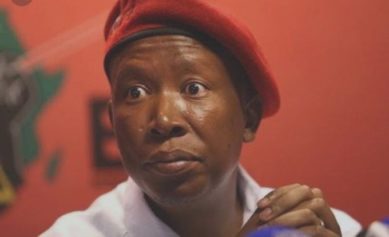South Africa is seeing an uptick in anti-immigrant violence once again after weeks of xenophobic rhetoric spewed by the nation’s top politicians.
In the last week alone, Malawians living in a South Africans settlement on the outskirts of Durban, have come under violent attacks by their neighbors, Quartz Africa reported. More than 100 people were forced to cram into a police station for protection as locals went on a rampage, breaking into homes and looting foreign-owned businesses.

Dozens were killed during attacks on foreigners living in the coastal city of Durban, South Africa in 2015. (Photo by REUTERS/MARK WESSELS)
The night of terror began after midnight on Sunday and reportedly ended with two people dead and several others injured, according to the news site. The violence was reportedly sparked by locals angry that foreigners were stealing their jobs.
“They started shouting, and telling us to leave, they kept chanting that we must leave their country; they hit and kicked my husband,” 22-year-old Loveness James, who is 9 months pregnant and due any day now, told the Sunday Tribune. “All I could think [about] was my unborn baby, my water breaking and me giving birth in front of the people who wanted us dead.”
Over several days, Malawians in the informal Burnwood settlement of Durban have been targeted for retribution. A separate attack unfolded last week when a Malawian national was reportedly found with stolen goods belonging to a South African. “[This] unfortunate situation was then hijacked by a group of locals who started kicking out other Malawians in the name of getting rid of ‘criminal elements,’ ” a statement from the mayor’s office said.
Calm was finally restored on Apr. 1 after South African officials stepped in and the Malawian community of Durban agreed to write a letter apologizing on behalf of the accused thief. No arrests were made.
Acting Malawian High Commissioner to South Africa Gloria Bamusi applauded the city and South African government for working “speedily” to resolve the issue so the “community of Burnwood and our people from Malawi will now live in a peaceful co-existence.” Despite the resolution, however, many native Malawians say they are ready to return home. More than 100 Malawians displaced by the attacks are now asking to be repatriated.
Elias Twaibu, 30, barely escaped the attacks on foreign nationals in Durban in 2015 and returned to Malawi. That country’s economic straits left him no other choice but to return to South Africa where he again fell victim to xenophobic attack last week.
“I came here [to Durban] because of the economic situation at home. I wanted a better life,” Twaibu told the Sunday Tribune. “Coming back to a country that stripped me of my dignity became my only option. I was so desperate [and] impoverished that I came back here. It’s a decision I truly regret making.”
Malawians aren’t the only nationalities targeted in the recent anti-immigrant attacks. Nigerians, Somalis, Congolese, Mozambicans and Zimbabweans have also faced xenophobic violence by locals overt the last decade, Quartz Africa reported.
According to the news site, “The 2015 attacks were fueled by comments made by Zulu King Goodwill Zwelithini as he flexed his political muscles. This time, the thread may not seem as direct, but the attacks come after weeks of anti-immigrant rhetoric by South African politicians,” including President Cyril Ramaphosa.
Ramaphosa condemned the attacks on Monday and reminded South Africans that they owe their African neighbors gratitude for their support during the struggle to end apartheid. Just days prior, however, the president blasted foreign nationals during a speech on the campaign trail, saying: “Everybody just arrives in our townships and rural areas and set up businesses without licenses and permits.
“We’re going to bring this to an end,” he added.
Officials with the ANC government have also blamed immigrants for burdening the public service. Opposition party, the Democratic Alliance, has expressed similar sentiments and pointed the finger at the ANC for the country’s “failing” immigration policies.
“In a society as unequal as ours, with all of the fractures that we have, it’s clear there is huge contestation at the base of our social structures,” Political analyst Imran Buccas told the Sunday Tribune. “This is not the first time we have seen xenophobic violence in South Africa, and particularly in Durban.”


